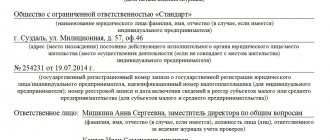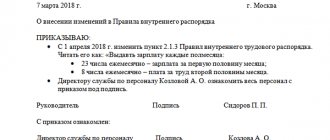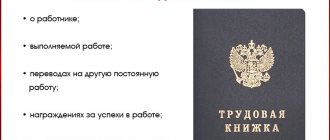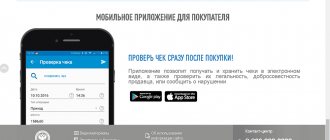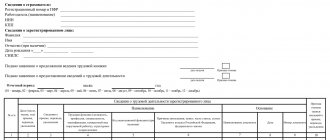Checks according to regulations
From October 22, 2019, employees of Rostrud and its territorial bodies are required to conduct inspections of employers in accordance with the administrative regulations, approved. order dated 06/13/2019 No. 160. The document, which applies, including to scheduled inspections of the State Inspectorate for 2020, is written taking into account the norms of international conventions, Federal Law dated 12/26/2008 No. 294-FZ on the protection of the rights of entrepreneurs in the implementation of state and municipal control, government decree No. 875 dated 09/01/2012, therefore it does not introduce any fundamentally new rules.
An interesting section of the administrative regulations describes what powers inspectors who conduct inspections have. Omitting the traditional rights to request documents and investigate accidents, Rostrud employees are allowed to:
- remove samples of materials and substances for analysis, having previously notified the employer;
- submit to the courts demands for liquidation or termination of the activities of organizations (their structural divisions) due to violation of labor protection requirements;
- prohibit the use of personal and collective protective equipment if they do not meet mandatory requirements;
- act as experts in court on claims for violation of mandatory standards and compensation for harm to injured workers;
- freely come to check employers at any time of the day upon presentation of identification.
Remember: if you are included in the annual inspection plan of the labor inspectorate, the duration of the inspection is no more than 20 working days. It is permissible to inspect a small enterprise for 50 hours per year, and a planned on-site inspection of a micro-enterprise should last no more than 15 hours per year. In exceptional cases, it is permitted to extend these deadlines. The upcoming inspection is notified in advance - at least 24 hours before it begins.
The State Fiscal Service has published a schedule of business tax audits in 2020
The State Fiscal Service (SFS) has published an inspection schedule for 2020. According to the document, 6,944 scheduled inspections will be carried out in the coming year. This is stated on the department's website.
Like last year, the schedule for 2020 consists of four sections. At first, tax officials published only the first two, according to which they intend to conduct 4,946 tax audits:
Section I. Documentary scheduled audits of taxpayers - legal entities;
Section II. Documentary scheduled inspections of financial institutions, permanent missions and representative offices of non-residents.
Two more sections were later made public:
Section III. Documentary scheduled inspections of individuals. It numbers 1,651 people, whom representatives of the State Fiscal Service intend to visit in 2020.
Section IV. Documentary scheduled inspections of legal entities regarding the correctness of calculation, completeness and timeliness of payment of personal income tax, military duty and a single contribution to compulsory state social insurance. Tax officials plan to conduct 347 audits on such issues.
https://youtu.be/QdlxmQELbMA
Find out about the inspection in advance
The website of the General Prosecutor's Office of the Russian Federation presents a plan for inspections of the prosecutor's office and all other regulatory authorities. The data is selected individually, taking into account the OGRN, TIN, name of the organization and state supervision body.
There is also a consolidated inspection plan of the State Labor Inspectorate that is freely available, but since it includes employers throughout the country, it is not very convenient to use. It’s easier to work with a table that presents information by region.
| Official websites of occupational safety and health inspections for 2020 |
| Altai region |
| Amur region |
| Astrakhan |
| Belgorod |
| Bryansk |
| Vladimir |
| Volgograd |
| Vologda |
| Voronezh |
| Moscow |
| Saint Petersburg |
| Sevastopol |
| Jewish Autonomous Region |
| Transbaikalia |
| Ivanovo region |
| Irkutsk |
| Kabardino-Balkaria |
| Kaliningrad |
| Kaluga |
| Kamchatka |
| Karachay-Cherkessia |
| Kemerovo — Kuzbass |
| Kirov |
| Kostroma |
| Krasnodar |
| Krasnoyarsk |
| Mound |
| Kursk |
| Leningrad region |
| Lipetsk |
| Magadan |
| Moscow region |
| Murmansk |
| Arkhangelsk and Nenets Aut. district |
| Nizhny Novgorod |
| Novgorod the Great |
| Novosibirsk |
| Omsk |
| Orenburg |
| Eagle |
| Penza |
| Permian |
| Primorsky Krai |
| Pskov |
| Adygea |
| Altai Republic |
| Bashkortostan |
| Buryatia |
| Dagestan |
| Ingushetia |
| Kalmykia |
| Karelia |
| Komi |
| Crimea |
| Mari El |
| Mordovia |
| Sakha (Yakutia) |
| North Ossetia Alania |
| Tatarstan |
| Tyva |
| Khakassia |
| Rostov region |
| Ryazan |
| Samara |
| Saratov |
| Sakhalin |
| Sverdlovsk region |
| Smolensk |
| Stavropol region |
| Tambov |
| Tver |
| Tomsk |
| Tula |
| Tyumen |
| Udmurt republic |
| Ulyanovsk |
| Khabarovsk |
| Khanty-Mansiysk Autonomous Region district - Ugra |
| Chelyabinsk region |
| Chechnya |
| Chuvashia |
| Chukotka Autonomous Okrug |
| Yamalo-Nenets Autonomous Okrug |
| Yaroslavl |
Let us remind you that the current legislation does not provide for supervisory holidays in relation to small enterprises or other categories of businessmen. Therefore, we recommend that all employers without exception study the plan and schedule of State Tax Inspections for 2020.
On-site tax audits in 2020, list of organizations
Contrary to common misconceptions, not all inspections are included in the Consolidated Plan. In accordance with the requirements of Part 4 of Article 1 of Federal Law No. 294-FZ of December 26, 2008, information about planned supervisory activities is required to be made publicly available by such departments as:
- Federal State Fire Supervision;
- Federal state supervision over compliance with labor laws;
- License control;
- State construction supervision;
- Export control;
- State environmental supervision;
- State supervision in the field of advertising;
- Federal State Transport Supervision;
- Federal state supervision in the field of road safety;
- Federal state supervision in the field of industrial safety;
- Federal state supervision over the activities of non-profit organizations;
- Regional state control (supervision) in the field of shared-equity construction of apartment buildings and other real estate, as well as over the activities of housing cooperatives related to the construction of apartment buildings;
- Federal state supervision in the field of circulation of medicines.
But the audits planned by the Federal Tax Service, by virtue of Part 3.1 of Article 1 of Federal Law No. 294-FZ of December 26, 2008, will remain secret. Because information about tax control and control over the payment of insurance contributions to state extra-budgetary funds is not subject to public access.
There will also be no information about planned events for:
- control over foreign investment;
- currency control;
- customs control;
- monitoring compliance with the requirements of legislation on combating the legalization (laundering) of proceeds from crime and the financing of terrorism;
- control over the processing of personal data.
Mozilla/5.0 (Windows NT 6.3; Win64; x64) AppleWebKit/537.36 (KHTML, like Gecko) Chrome/81.0.4044.122 Safari/537.36 [2a01:4f8:162:224::2]
What to do if someone comes to you
The basis for any inspection is an order from the head of the inspection. The GIT audit in 2020 is no exception.
Therefore, when visiting your office, inspectors must present their official identification and a regulatory document that specifies the basis for the inspection.
In addition, the planned audit of the State Tax Inspectorate must be coordinated with the prosecutor's office.
The list of all possible grounds is specified in Article 360 of the Labor Code of the Russian Federation, including:
- complaints from former and current employees;
- demands of the prosecutor and a number of others.
Next, the auditors will request the necessary documents and information.
Please note that inspectors have the right to request information that relates exclusively to the subject of their inspection. They have no right to demand anything more - a direct prohibition is stated in Article 15 of the said Federal Law.
Resubmission of documents - according to new rules
During any inspection or additional control, the inspection may require documents that the company or entrepreneur has already submitted during one of the previous inspections. We are talking about two types of papers:
- Submitted last time in originals and therefore returned by the inspection after the last inspection.
- Submitted earlier, but due to force majeure, lost by the tax authorities.
In other cases, until September 3 last year, the inspection could not re-demand documents that:
- have already been submitted as part of desk or field control;
- submitted in the form of copies as part of tax monitoring.
On September 3 last year, changes to paragraph 5 of Article 93 of the Tax Code of the Russian Federation came into force, according to which the rights of taxpayers not to resubmit documents were clarified. The downside is that now the inspection is not limited in re-demanding documents. However, there is a plus: you will not have to resubmit any documents if you inform the inspectorate:
The rules for such communication have also been established. The inspectorate will have to be notified no later than the day following the date of receipt of the tax authorities’ request to submit “repeated” papers. You can send a message:
- in paper form – to the inspection office;
- in electronic form - via TKS or using your personal account on the Federal Tax Service website.
Taxpayers who do not have to submit electronic returns can send a notice to the inspectorate by registered mail.
What will GIT employees check?
Preparation for the inspection begins with a list of papers that the State Tax Inspectorate checks in 2020, including:
- employee contracts;
- work books;
- books for recording the movement of shopping malls and inserts for them;
- documents establishing the procedure for processing personal data and labor protection;
- internal labor regulations;
- vacation schedules, shifts;
- time sheets;
- medical books.
However, there is a nuance: inspectors do not have the right to demand papers that are not related to the subject of the study, or to seize original documents. In addition, there are deadlines that inspectors have no right to violate. If the deadlines are violated, the results of the audit will be considered invalid.
For example, the time allotted for a scheduled or unscheduled inspection does not exceed 20 working days, and this period includes drawing up a report on the results of the inspection.
For small businesses, the total inspection time for a calendar year does not exceed:
- 50 hours - for a small enterprise;
- 15 hours - for a micro-enterprise;
- 15 hours - for individual entrepreneurs.
Is it possible to find out a list of questions that will be subject to a scheduled GIT inspection? Such lists are contained in checklists, which are available free of charge on the Rostrud website.
Read more: What does GIT check?
Conducting an on-site tax audit
Planned on-site control is carried out in relation to companies and entrepreneurs, taking into account the level of risk assigned to them. When conducting an audit, tax officials analyze the following:
- dynamics of tax payments;
- correlation of accounting and tax reporting with average indicators for similar entrepreneurs and companies;
- accrued and paid taxes;
- dynamics of tax and accounting reporting indicators for various periods;
- factors that influence the tax base.
Registration of results
At the end of the inspection activities, the inspectors draw up a report. It is drawn up in two copies and drawn up immediately after the completion of the inspection. Nobody knows what the legislation includes in the term “directly”, but demand this document from the inspectors immediately after all activities are completed and, if it is not provided, file a complaint with the State Tax Inspectorate itself and the prosecutor’s office.
Read more: Should you argue with the labor inspectorate?
Tax audits in 2020
Tax authorities carry out control activities in two main forms.
- Desk audits of tax reporting.
- On-site control.
Not all organizations are selected for inspection. Only those that meet certain criteria. For example, they have a high share of value added tax deductions or a very small tax burden.
The Federal Tax Service regularly approves the list of organizations that are subject to tax audit. This list is established for each year.
Based on the results of the audit, the organization or its leader (other officials, for example, an accountant) may be brought to administrative or tax liability.
Attention: scammers!
The State Labor Inspectorate in the Kaluga Region and colleagues from other regions officially warn that scammers are coming to employers on behalf of Rostrud employees. People who introduce themselves as State Inspectorate employees offer various kinds of paid services to prepare for supposedly upcoming unscheduled inspections. It is difficult to say how good the specialists are who offer such assistance.
Rostrud reminds that the list of enterprises for which inspections are planned is freely available. When visiting a company, inspectors are required to present an official ID and an inspection order, which must be signed by the head of the territorial body and certified with a seal. Inspectors do not provide any paid services, the department emphasizes. If you notice that control rules are being violated (for example, there were no reports of an unscheduled visit), be vigilant, it is possible that scammers have come to the organization. In such cases, feel free to contact law enforcement agencies.

